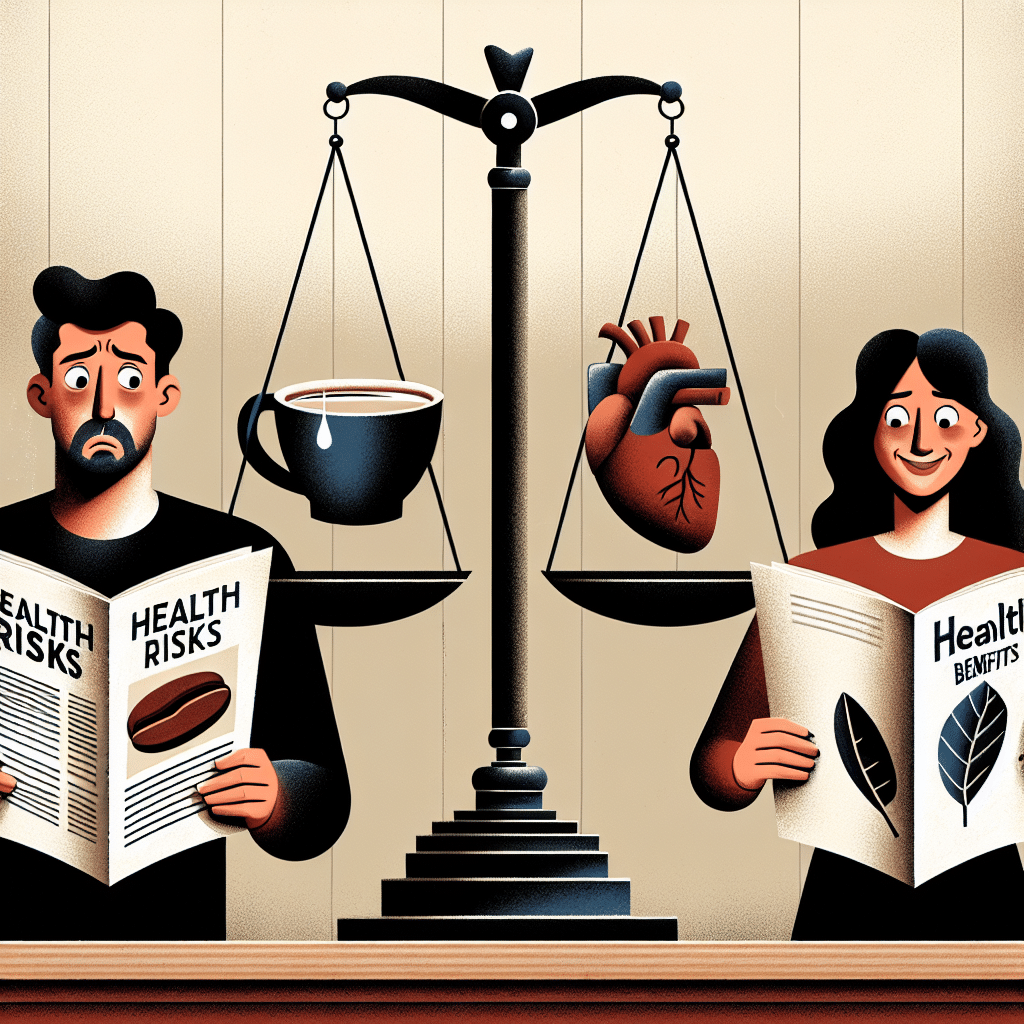Coffee and Health: Consumers’ Split Opinions Investigated
-
Table of Contents
Coffee and Health: Exploring the Diverse Consumer Perspectives
The relationship between coffee and health has been a topic of heated debate for decades. With a plethora of studies yielding both positive and negative findings, consumers are often left in a state of confusion regarding the health implications of their beloved brew. This article delves into the split opinions surrounding coffee consumption and health, examining the evidence to provide a clearer picture for consumers.
The Health Benefits of Coffee
Many coffee enthusiasts are quick to point out the potential health benefits associated with their daily cup of joe. Here are some of the positive effects that have been supported by research:
- Antioxidant Properties: Coffee is rich in antioxidants, which help combat oxidative stress and may reduce the risk of chronic diseases.
- Improved Mental Alertness: The caffeine in coffee is well-known for its ability to enhance focus and concentration.
- Reduced Risk of Certain Diseases: Studies have suggested that regular coffee consumption may be linked to a lower risk of diseases such as Parkinson’s, Alzheimer’s, type 2 diabetes, and certain forms of cancer.
- Enhanced Physical Performance: Caffeine can increase adrenaline levels and release fatty acids from fat tissues, improving physical performance.
For instance, a meta-analysis published in the journal “Circulation” found that moderate coffee consumption was associated with a reduced risk of cardiovascular disease. Another study in “The Journal of Nutrition” highlighted coffee’s potential to lower the risk of type 2 diabetes.
The Health Concerns of Coffee
On the flip side, some consumers and health experts express concerns about the potential negative effects of coffee, including:
- Increased Anxiety and Insomnia: Caffeine can exacerbate anxiety symptoms and disrupt sleep patterns, particularly in sensitive individuals.
- Risk of Bone Fractures: Some research suggests that excessive coffee consumption may be linked to an increased risk of bone fractures in women.
- Potential Heart Issues: High doses of caffeine might lead to heart palpitations and elevated blood pressure.
- Gastrointestinal Problems: Coffee can irritate the digestive system, leading to issues such as acid reflux and indigestion.
For example, a study in “The American Journal of Clinical Nutrition” raised concerns about the association between high coffee intake and the risk of fractures in women. However, it’s important to note that these findings often come with caveats, such as the need for more research or consideration of other lifestyle factors.
Consumer Perceptions and Behaviors
Given the mixed messages from scientific research, consumers’ opinions on coffee and health are understandably varied. Some individuals swear by their daily coffee ritual for its perceived health benefits and the pleasure it brings, while others avoid it due to concerns about potential health risks or negative side effects.
Marketing campaigns and media coverage can also influence consumer perceptions. For instance, when a new study highlighting the benefits of coffee is released, there may be a surge in positive sentiment towards coffee consumption. Conversely, reports focusing on the risks may lead to increased caution or even avoidance among health-conscious individuals.
Case Studies and Statistics
Real-world examples and data further illustrate the divide in consumer opinions. A survey conducted by the National Coffee Association (NCA) found that 64% of American adults drink coffee daily, with health considerations playing a role in their consumption habits. On the other hand, a study from the University of South Australia indicated that people who drink six or more cups of coffee a day are at a higher risk of heart disease, which may deter heavy coffee drinkers.
Another interesting case is the state of California’s consideration to require cancer warning labels on coffee, based on the presence of acrylamide, a chemical produced during the roasting process. This proposal sparked widespread debate and ultimately led to a ruling that coffee does not require a cancer warning, as the levels of acrylamide in coffee are considered safe.
Conclusion: Weighing the Evidence
In conclusion, the split opinions on coffee and health are a reflection of the complex and sometimes contradictory nature of nutritional science. While there is evidence to support both the benefits and risks of coffee consumption, it is clear that moderation is key. Consumers should consider their own health conditions, consult with healthcare professionals, and stay informed about the latest research to make the best decisions for their personal well-being.
Ultimately, the choice to drink coffee should be a personal one, informed by an understanding of the potential risks and benefits, as well as one’s own body and health profile.
Enhance Your Health with ETChem’s Protein Products
For those looking to complement their diet with high-quality protein, ETChem offers a range of collagen products that can support overall health and wellness. Whether you’re a coffee lover or not, incorporating ETChem’s protein supplements into your routine can provide numerous health benefits, from improved skin health to joint support. Explore their offerings to find the perfect addition to your health regimen.
About ETChem:
ETChem, a reputable Chinese Collagen factory manufacturer and supplier, is renowned for producing, stocking, exporting, and delivering the highest quality collagens. They include marine collagen, fish collagen, bovine collagen, chicken collagen, type I collagen, type II collagen and type III collagen etc. Their offerings, characterized by a neutral taste, instant solubility attributes, cater to a diverse range of industries. They serve nutraceutical, pharmaceutical, cosmeceutical, veterinary, as well as food and beverage finished product distributors, traders, and manufacturers across Europe, USA, Canada, Australia, Thailand, Japan, Korea, Brazil, and Chile, among others.
ETChem specialization includes exporting and delivering tailor-made collagen powder and finished collagen nutritional supplements. Their extensive product range covers sectors like Food and Beverage, Sports Nutrition, Weight Management, Dietary Supplements, Health and Wellness Products, ensuring comprehensive solutions to meet all your protein needs.
As a trusted company by leading global food and beverage brands and Fortune 500 companies, ETChem reinforces China’s reputation in the global arena. For more information or to sample their products, please contact them and email karen(at)et-chem.com today.





